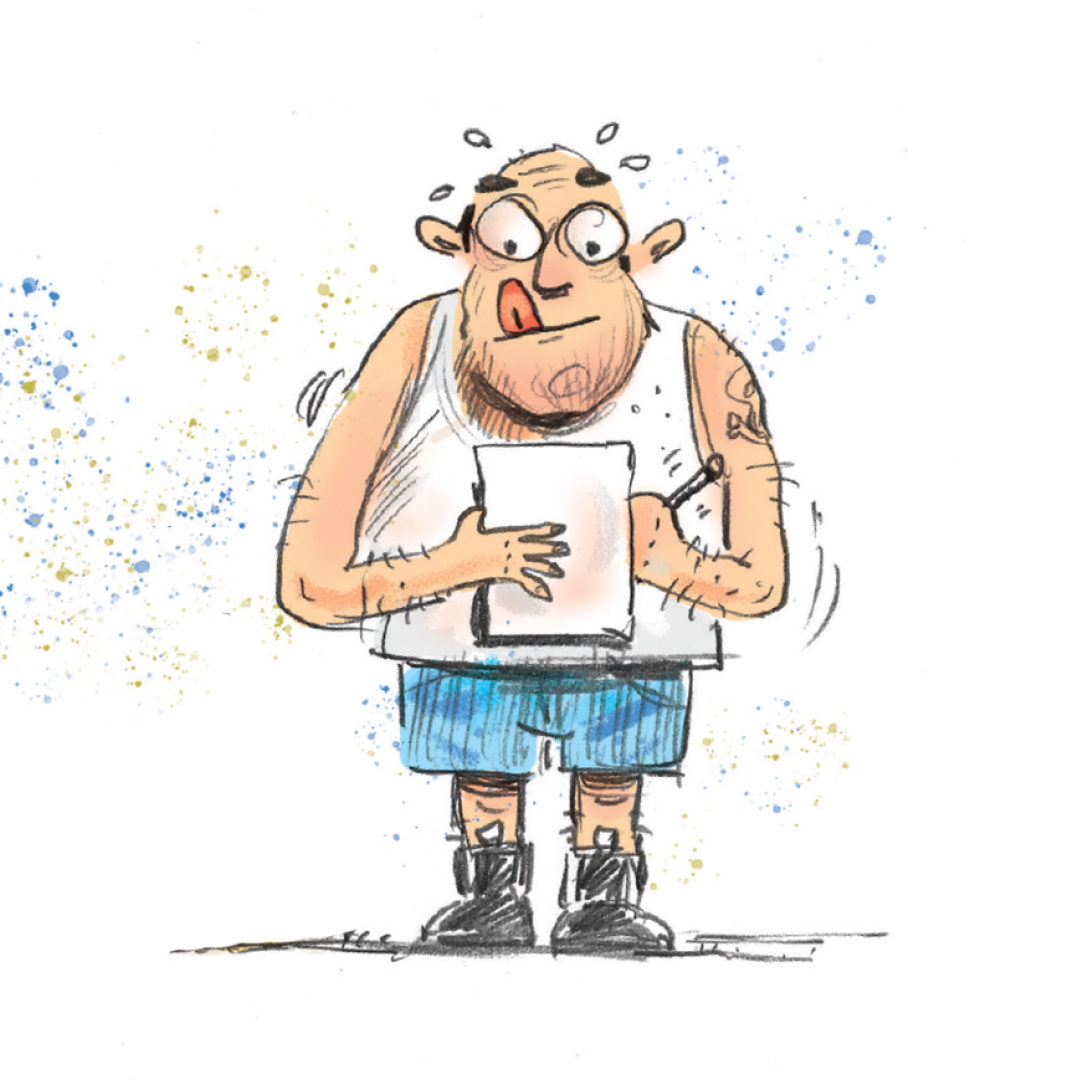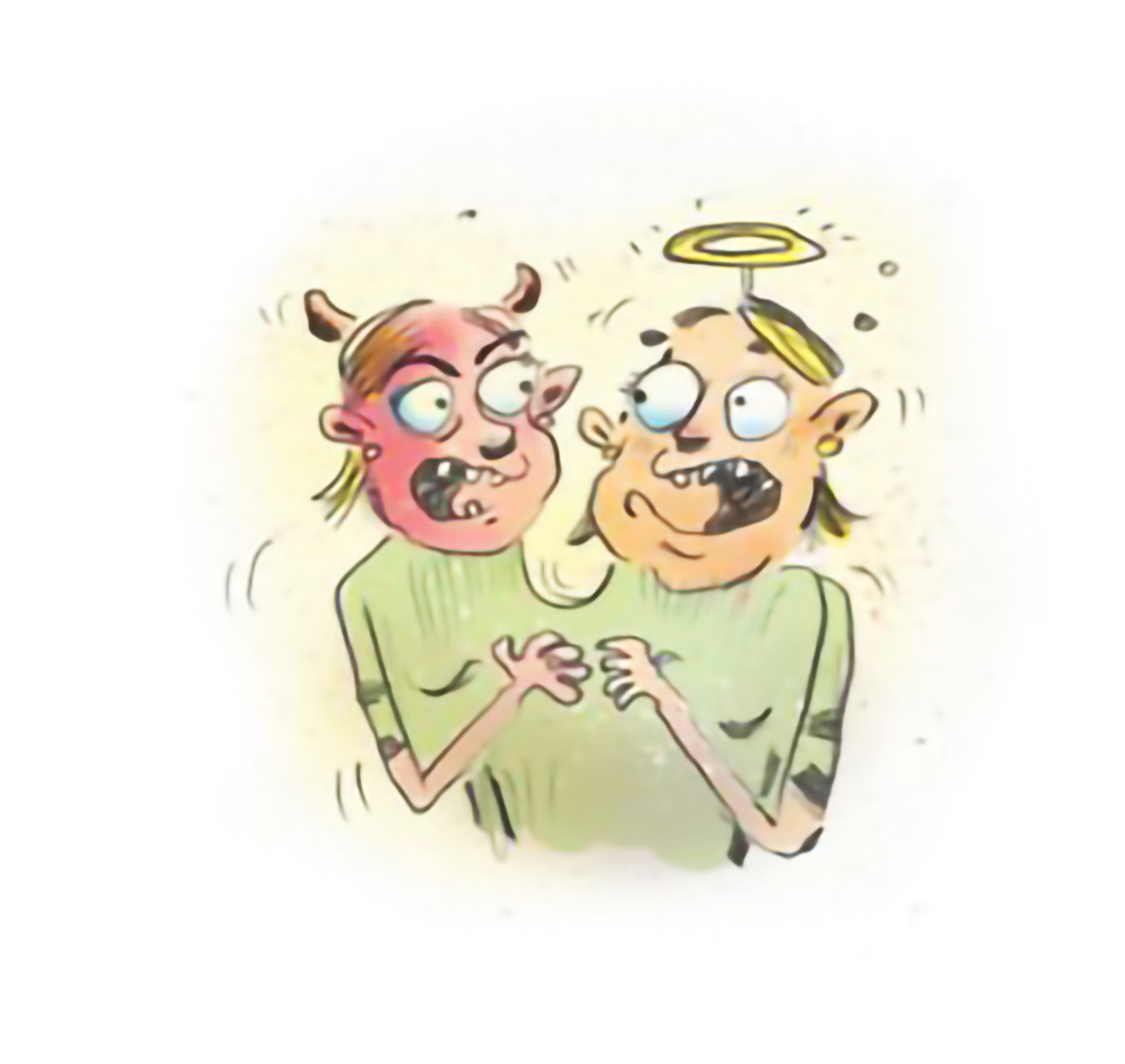For many of us, Christmas is all too often anything but merry. There is no escaping the stark, dark statistics. A spike in cases of suicide, a dramatic increase in calls to lifeline and a bloody uptick in presentations to emergency services clearly shows that the holidays are, for many of us, anything but happy. As a result of the COVID pandemic our mental health system is already overwhelmed. There is little doubt that the system will be swamped even more this Christmas. Some patients are already having to wait up to five months to see a qualified practitioner. Tragically many will fall through the growing number of holes in the safety net. But it is not all doom and gloom. Forewarned is, as they say, forearmed.
If it’s the season to be jolly, why are so many of us so sad?
If you fail to look ahead and realistically manage your expectations, Christmas cheer can become Christmas tears in a heartbeat. Failing to look ahead is like fanging it down a dark road through thick fog in the vain misplaced hope that you won’t hit anything. If you don’t look at what’s coming “Ho! Ho! Ho!” will swiftly morph into “Oh Em Gee!” You will crash. Slow down and evaluate the emotional terrain you will be travelling through over the next few weeks of this sometimes not-quite-so-festive season. Take time to consider factors relating to your own individual circumstances that may put you at risk. For example: Over the past five decades the percentage of Australians living alone has increased by 300%. There is some evidence that this trend is slowing down, however, the truth is that one in every four of us still lives alone. Loneliness and being socially disconnected is a major contributor to depression. In the same way that the dripping tap becomes louder in the still wee hours of the night, loneliness is amplified when, in stark contrast to your isolation and solitude, you are surrounded by blissful families celebrating Christmas together. Around this time, many of us start to feel that despite her belting out a chorus asserting the contrary over the P.A. at Woolie’s, Mariah Carey doesn’t really want us for Christmas.
It’s silly season. You’d be wise to pump up your spare tyre of support
It’s really not smart to drive around without a spare tyre. Now, imagine this as a metaphorical “spare tyre of emotional support”. An apt metaphor for the support you can call upon from friends and family. Imagine breaking down or getting a metaphorical puncture and having no one to turn to. Hopefully this gives you a sense of just how isolated and vulnerable lonely people sometimes feel. Some of my patients have described feeling absolutely desolate upon being admitted to hospital and having no one to put down as next of kin. Service your support network and make sure your metaphorical spare tyre is pumped up and primed for the bumpy journey from here to January.
The spirit of Christmas isn’t liquor.
Christmas and alcohol are a cocktail of the Molotov variety. Alcohol is an opioid agonist (a substance which initiates a physiological response when combined with a receptor) that temporarily makes you feel elevated. The bad news is that it is also a central nervous system depressant guaranteed to amplify our woes. Furthermore, very few of us can claim to have made our finest decisions after 12 eggnogs and half a bottle of Bundy. Two sheets to the wind and our darker angels start sounding perfectly reasonable as they encourage us to give the boss that long overdue whoops upside the head at the office party or to haul family skeletons out of the closet for public dissection over dessert at Christmas dinner. Perhaps by now it’s starting to sound like Christmas alone isn’t all that bad.
To amplify problems just add alcohol. People smoke, drink and take drugs as a quick fix that delivers immediate relief to problems like anxiety or depression or loneliness. The quick fix actually fixes nothing. Any relief you feel is temporary and the come down to the sober light of day will often leave you feeling even worse. And never more so than at Christmas time.
Christmas is one of the busiest days of the year for paramedics and police.

The disinhibiting effect of alcohol reignites old family feuds and fuels domestic violence. To turn family conflict into a conflagration, just pour alcohol on the yuletide fire. Christmas is just as much of an emotional pressure cooker as weddings and funerals are. Groups of biologically connected yet psychologically dissimilar people come together in an emotionally charged environment to celebrate, which usually involves drinking. All things considered it’s hardly surprising that they end up threatening to thump each other with drumsticks, crown each other with cranberry sauce, bash each other with gravy boats and give each other a solid poke in the Christmas pudding. I am making light of occasions that can, and often do, escalate into conflict and upset. When they do it is often thanks to the incendiary effect of alcohol and it is seldom funny.
Expect too much and you’ll be sorry tra la la la lah…
Christmas is often made difficult because we expect too much of ourselves and of others. The whole kerfuffle often ends up costing way more than it’s worth. Both in terms of stress and hard cold cash. Overpriced tchotchkes that we don’t want or need proliferate. Presents arrive wrapped in obligation tied up in ribbons of unworkable expectation. Christmas has come to resemble the worst Black Friday fracas. And long after Christmas lunch has settled around your waistline and as unwanted as inches and as blubber on your bum, comes the bitter aftertaste of punitive credit card interest, payments missed, and late fees incurred. It is an uncomfortable but nevertheless incontrovertible fact that today’s younger generation is more consumerist than the Baby Boomers ever were. Their catch cry is “I don’t want much I just want more!” Additionally, they believe they are entitled to it and shouldn’t have to work for it. Sadly, well intentioned parents continue to pick up the tab, in more ways than one. Motivated by the desire to give their kids what they wanted themselves back when they were children, parents make inappropriate disproportionate sacrifices. The return on this investment is uniformly very poor indeed. It often seems that the more kids get, the less they appreciate. Remember the toxic stairway. Request becomes expectation. Expectation escalates into imperious demand.
“Food, glorious food
Hot sausage and mustard
While we’re in the mood
Cold jelly and custard. Wow!”
Lionel Bart. Oliver The Musical.
Take overindulgence off the menu. Christmas Day is a day when seemingly none of the usual rules apply. We eat until we are literally and metaphorically stuffed. We then wonder why we don’t feel satisfied and try to wash it all down with another three gin star martinis or a small bucket of mulled wine. Too much of a good thing is a bad thing. I don’t want to be the Grinch or steal the joy from Christmas. I know I might sound cynical, but come January, it is the psychologists and psychiatrists who will be mopping the aftermath and emotional mess left over by Christmas. I have no doubt that police, first responders, lifeline counsellors and GPs working at the coalface of mental health and suffering, feel much the same way.
There’s no present like the time.
- It’s not as if you didn’t know Christmas was coming. If you think you might find yourself alone on Christmas Day give yourself time to plan ahead. Remember there is a large family to which we all belong. The family of humankind. Make a resolution to smile and greet people you meet. Wave other drivers into the traffic ahead of you. Let people into the queue. You’ll be amazed how much goodwill flows right back to you.
- Take the time to remind yourself that while a little treat here and there is in order, death by buffet is not an option. Be like the French and have smaller portions of a variety of delicious titbits. You don’t have to scarf the whole turkey, hog the ham or drain the entire wine cellar.
- Take time to arrange to do something other than eat and drink. Plan to binge on a favourite series and put it aside for viewing on the day.
- Reflect for a time on what it really is that gives Christmas the potential to bring us joy and happiness. It’s not the turkey. It’s not the alcohol. It’s not the new iPhone 25. It’s the sense of belonging. The smiles on familiar faces.
- The greatest Christmas present of all is free. It is the gift of precious time spent together. Time that we can use to strengthen, revitalise, and renew the relationships that give life meaning. And that includes our relationship with ourselves.
If you feel worthless and insignificant in a cruel, indifferent and uncaring world, try giving. It’s better to give than to receive is a truism not a cliché. If you want to know how much your time, love and energy are worth, try investing a little emotional gold in a random act of kindness. When you give a bit of your gold to someone in need you feel good, and they feel better. Be living evidence that there is yet light in the world.
Make Christmas something that you do not something that happens to you.
Accept that blood is often not thicker than water. You can be blessed or cursed with family but it’s seldom a case of all or nothing. Spend only what you can afford both literally and metaphorically. Invest in your relationships. A lot in the one’s that matter. Less in the ones that don’t. Relationships give our lives meaning. Finally, if all else fails, remember the sage old advice, “If you can’t say something nice, say something incredibly clever and emotionally devastating.” I am kidding of course: If you can’t say something nice don’t say anything at all.
I wish you joy and peace for Christmas and an abundance of mental health and wellbeing in the New Year.









